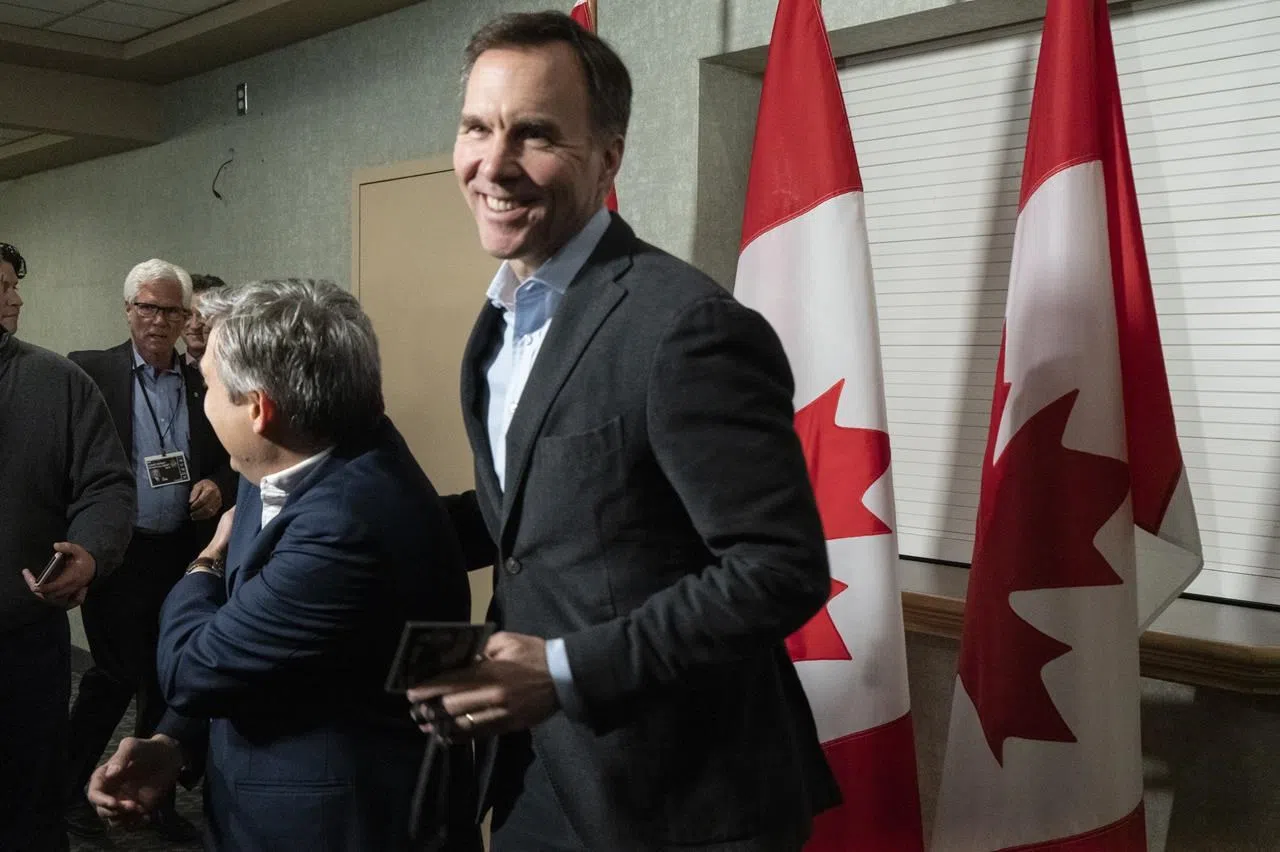
Global trade disruptions don’t dampen Morneau’s optimism about Canada’s economy
SHERBROOKE, Que. — Finance Minister Bill Morneau painted a rosy picture of Canada’s economic future Wednesday, despite diplomatic and political upheavals around the world that could disrupt global trade and impede growth just as this country prepares to head to the polls in October.
Morneau’s upbeat assessment came as he arrived for the start of a three-day cabinet retreat — the first meeting of Prime Minister Justin Trudeau’s cabinet since he conducted a small shuffle earlier this week.
The retreat is taking place against a backdrop of chaos engulfing the British government as it tries to extricate the United Kingdom from the European Union and escalating diplomatic tensions between Canada and China.
“We’re watching closely what’s going on in the United Kingdom. It’s obviously an enormous challenge for the Conservative government there,” Morneau said.


